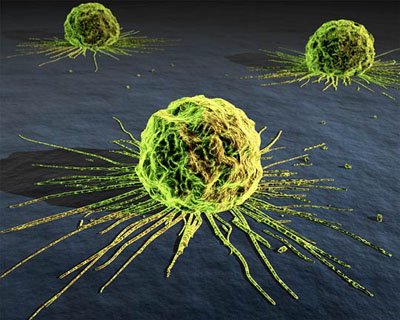
Hope for triple-negative breast cancer patients – EntreMed preclinical study of ENMD-2076 gives positive results
Singapore: EntreMed, a clinical-stage pharmaceutical company developing targeted therapeutics for the treatment of cancer in China and the US, published positive results of its preclinical study of breast cancer, involving its oral aurora angiogenic kinase inhibitor, ENMD-2076.
The article, entitled 'Predictive biomarkers of sensitivity to the aurora and angiogenic kinase inhibitor ENMD-2076 in preclinical breast cancer models', reported evidence that ENMD-2076 exhibited robust anticancer activity against breast cancer cell lines lacking expression of the estrogen receptor (ER), progesterone receptor (PR) and without HER2 amplification, which is a particularly difficult to treat subtype termed triple-negative breast cancer (TNBC). TNBC is associated with a shortened disease-free and overall survival at all stages of diagnosis when compared with other breast cancer subtypes.
In this study, a diverse panel of 29 breast cancer cell lines representative of the clinically defined breast cancer subtypes were exposed to ENMD-2076 and the effects on proliferation, apoptosis, and cell cycle distribution were evaluated. ENMD-2076 demonstrated more robust activity against cell lines of the TNBC subtype as compared to the luminal and HER2-amplified subtypes. This in vitro activity was confirmed in vivo, in MDA-MB-468 and MDA-MB-231 TNBC xenografts.
Baseline gene expression profiling and pathway analysis of the panel revealed that p53 and G1/S cell cycle pathways were upregulated in the more sensitive cell lines. Within the TNBC subset itself, cell lines with a p53 mutation and increased p53 expression were more sensitive to the cytotoxic and pro-apoptotic effects of ENMD-2076 exposure than cell lines with decreased p53 expression. This information provides the basis for a predictive biomarker strategy to explore in future clinical trials with ENMD-2076.
Dr Jennifer R Diamond, University of Colorado School of Medicine, who led the study, commented, "Triple-negative breast cancer is an aggressive breast cancer subtype which carries a high risk of developing metastasis. A major barrier to the successful treatment of metastatic TNBC is the lack of effective targeted anti-cancer agents. Through this study, we show that ENMD-2076 has activity against preclinical models of breast cancer with more robust activity against TNBC. The study also supports further clinical investigation of ENMD-2076 in patients with metastatic TNBC with an emphasis on the continued development of p53-based predictive biomarkers."
Dr Ken Ren, CEO, EntreMed, further commented, "One of the major challenges for the development of a target therapy for cancer is the identification of a responsive subtype with a predictive biomarker. In our previous phase I study, we observed a patient with TNBC who had failed multiple chemotherapy regimens then had clinically significant stabilization of disease for 41 weeks after ENMD-2076 treatment.
"The benchmark of median duration after first line therapy in such patients with metastasis is just 12 weeks. This pre-clinical study illustrated scientific insight into the selective sensitivity of TNBC to ENMD-2076 with direct correlation to p53 mutation and over expression. It provides strong support for the rational of our ongoing phase II TNBC trial," he said.




